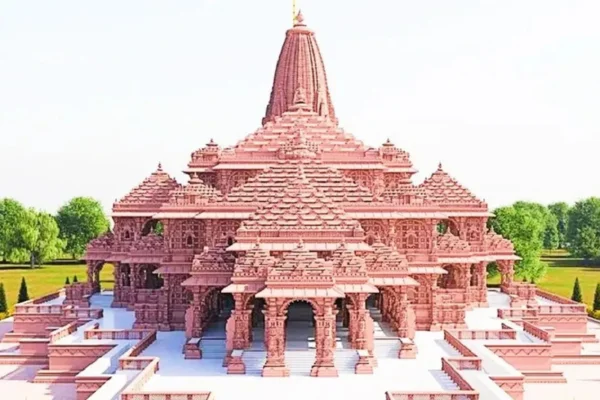In the aftermath of the inauguration of the Ram Temple in Ayodhya, Uttar Pradesh, the state of Karnataka witnessed a disturbance during a Lord Ram idol procession in Wadi town, Kalaburagi district. Subsequently, the Karnataka government has imposed prohibitory orders under CrPC section 144, effective until 6 am on January 25. These orders were implemented as a precautionary measure to maintain law and order and prevent any untoward incidents.
The altercation took place during the procession and led to an alleged stone-pelting incident involving two groups. Police intervened and used ‘mild’ force to disperse the crowd. The procession was organized to commemorate the consecration of the idol of Lord Ram at the Ram Temple in Ayodhya.
Describing the incident as a quarrel that escalated into a heated argument, a senior police officer affirmed that the situation was swiftly brought under control. The prohibitory orders in the Wadi area of Chittapur taluk were imposed as a preemptive measure to avoid any further escalation.
However, tensions persisted in various parts of the district on Tuesday as Dalit organizations staged protests condemning the alleged defacement of a Dr. BR Ambedkar statue at Kotnoor village on the outskirts of Kalaburagi city. Protesters claimed that miscreants had put a garland of footwear on the Ambedkar statue and demanded stringent action against the culprits.
“We are trying to identify the culprits, and action will be taken as per the law against those involved in the alleged act,” stated a police officer. The incident occurred late on Monday night, and police teams are on the spot to maintain control and ensure the situation does not escalate further.
The Ram Temple inauguration in Ayodhya has been a significant event, and its repercussions are felt in various parts of the country. While it is a momentous occasion for many, incidents like the one in Kalaburagi highlight the potential for tensions and conflicts to arise. The Karnataka government’s prompt imposition of prohibitory orders demonstrates a proactive approach to maintain public order and prevent any communal disharmony.
Prohibitory orders under CrPC section 144 grant law enforcement authorities the necessary powers to regulate gatherings and prevent any actions that could lead to violence or unrest. The decision to enforce these orders until January 25 indicates a cautious approach to ensure stability in the region.
The alleged defacement of the Dr. BR Ambedkar statue adds another layer of complexity to the situation. Ambedkar, a key architect of the Indian Constitution, is an iconic figure representing social justice and equality. Any disrespect or defacement of his statues is viewed seriously and can evoke strong reactions from communities.
As investigations proceed to identify and take action against those responsible for the Ambedkar statue incident, the local administration must navigate the delicate balance of upholding the rule of law and addressing the concerns of the protesting groups. Swift and fair resolution of such incidents is crucial to preventing further tensions and maintaining social harmony.
The aftermath of the Ram Temple inauguration has led to localized incidents that require careful handling by authorities. The Karnataka government’s imposition of prohibitory orders and efforts to address the concerns related to the Ambedkar statue reflect the challenges of managing diverse sentiments in the aftermath of significant national events. Effective communication, community engagement, and adherence to the rule of law will be essential in ensuring that such incidents are resolved peacefully and do not escalate further.














